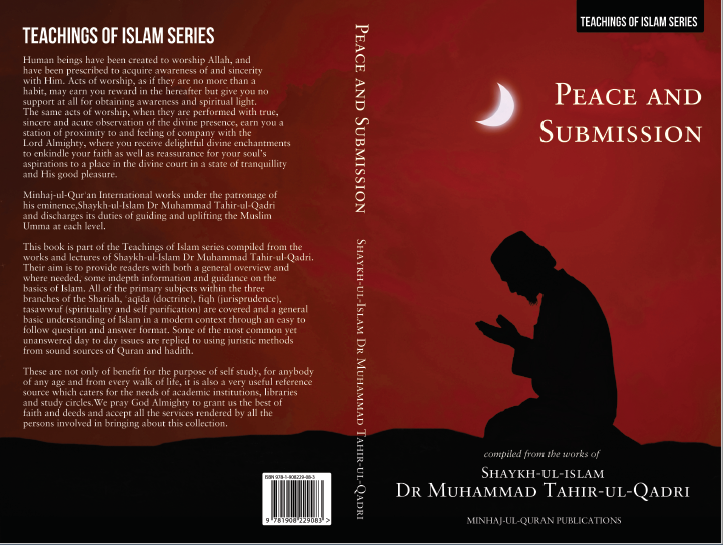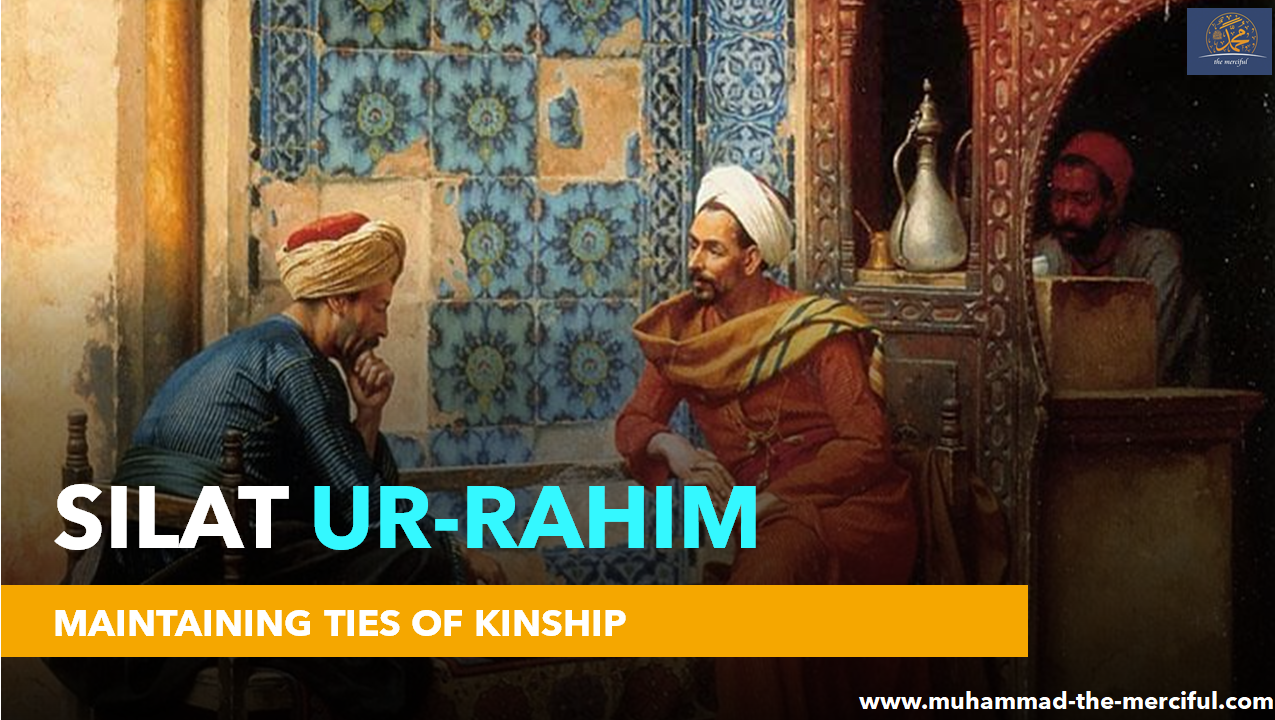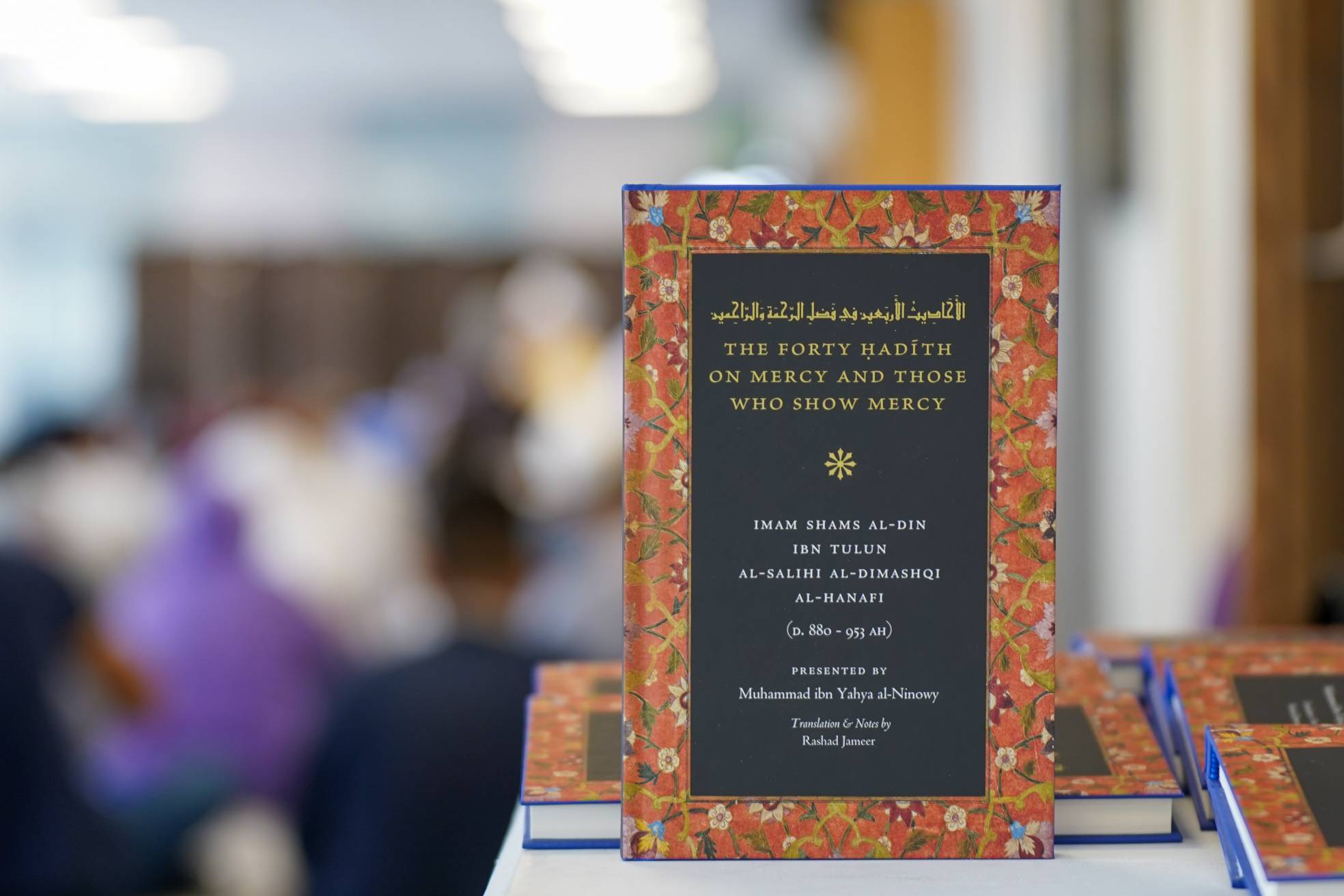Islam has placed tremendous emphasis on maintaining the bonds of kinship (silat-ur rahim). Silat ar-rahim means to take care of kin, to visit them and to assist them in whatever way possible.
(1) Duties of Commission The Holy Qur’an has enjoined looking after the well-being of one’s relatives—sisters, brothers, aunts, uncles, cousins, nieces, nephews, grandparents, grandsons, granddaughters, etc.—and rendering to them all possible assistance with the purest of motives. In that connection, to support indigent relatives unable to earn their living economically, to share their joys and sorrows, to strengthen family ties and never to break with (sever relationship with) them are among the fundamental teachings of Islam.
(a) It emphasizes thorough conscientiousness in respect of the ties of kinship:
وَاتَّقُواْ اللّهَ الَّذِي تَسَاءَلُونَ بِهِ وَالْأَرْحَامَ
“… And (become Godfearing) towards your own kith and kin (as well)…” ►(Surah An-Nisa Ch. 4:Verse 1).
(b) It places the duty of doing good to one’s kith and kin immediately next to the duty of doing good to parents—which stands at the highest in the category of social duties,—thus highlighting the great importance of the duty to kith and kin :
“… and do good to parents and to the kinsfolk …” ►(Surah An-Nisa Ch.4:V.36).
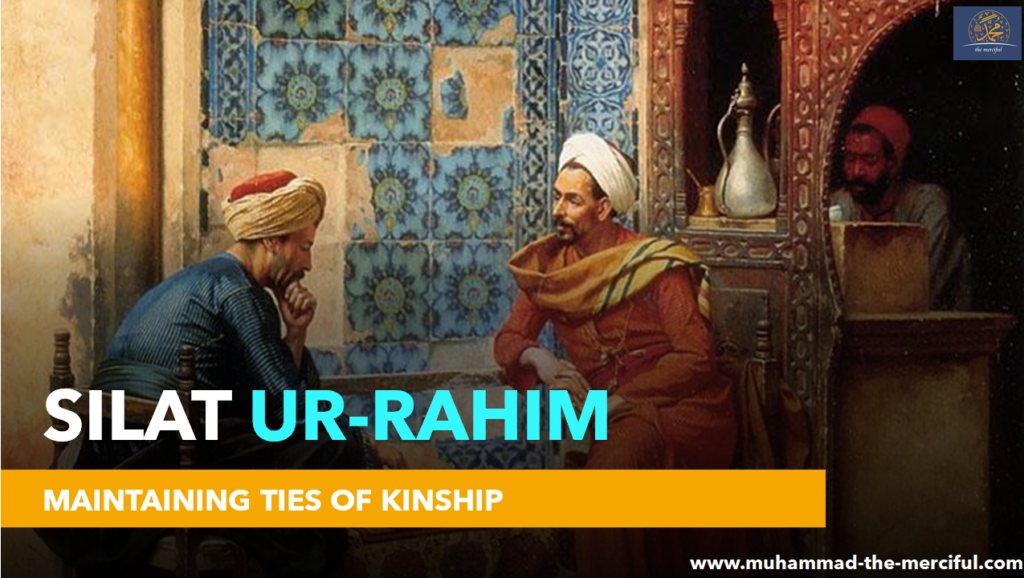
The Qur’an and the Sunna also place a great deal of emphasis upon the economic rights of kinship:
(c) It makes economic assistance to the kinsfolk, with the noblest motive, one of the basic ingredients of practical piety:
They ask you what they should spend (in the way of Allah) Say: ‘Whatever wealth you spend (is right), but the deserving ones are your parents, and near relatives, and orphans, and the needy and the wayfarers. And whatever good you do, Allah indeed knows it full well. ►[Surah al-Baqara, 2:215]
“… (it is true righteousness) to spend of your substance, out of love for Him (i.e., God), for your kith and kin …” ►(Surah Al-Baqara Chapter 2:V. 177).
(d) And not only that. Doing good to one’s relatives and assisting them in their needs, is not just an optional act of goodness but an unavoidable duty; because the relatives have a definite right whose fulfillment a Muslim owes to them:“So give what is due to kindred…” ►(Surah Ar-Rum Chapter 30:Verse 38).
“Verily Allah enjoins justice, the doing of good (to others in general), and giving to kinsfolk (their due) …” ►(Surah An-Nahl 16:Verse 90).
Thus: Duties of Commission towards the kinsfolk may be broadly classified into:
a. Maintaining cordial relations with them, and cultivating love for them;
b. Rendering economic assistance to them, whenever necessary;
c. Doing good to them in every other way.
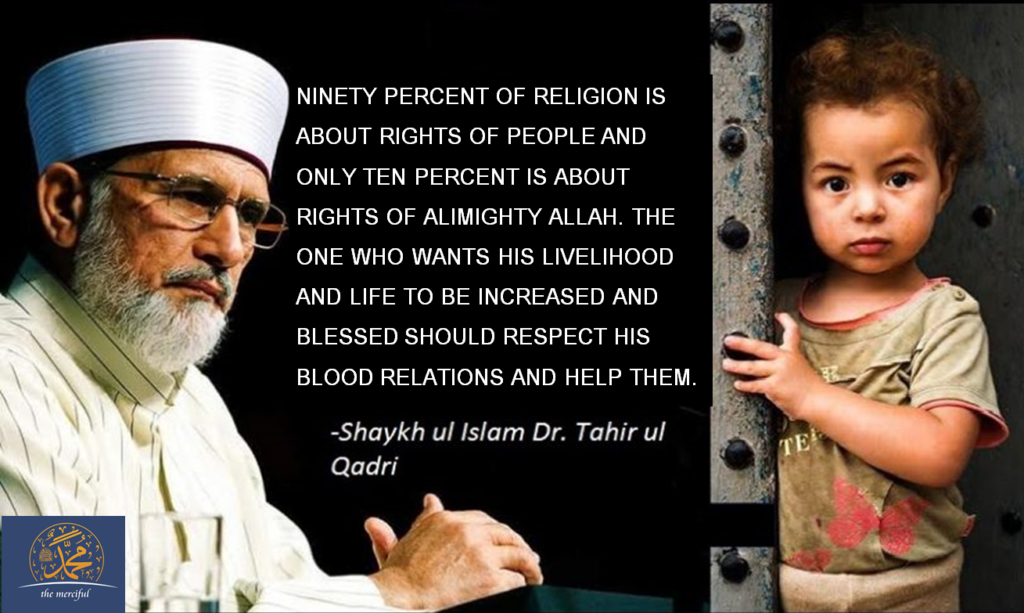
(2) Duty of Omission: The Holy Qur’an condemns in strong terms the damaging of the ties of relationship with one’s kith and kin; hence to abstain from it is duty: “… The transgressors, who break the Covenant of Allah after ratifying it, and sever that which Allah ordered to be joined (i.e., damage the relationship with, and violate the duties they owe to, among others, the kinsfolk), and act corruptly on the earth, these are they who are the losers.”►(Surah Al-Baqara Ch. 2: Verse 26-27).
Hadrat Jubayr b. Mut’am(RA) reports that he heard the Prophetﷺ say, ‘Never shall enter the Paradise the one who severs kinship.’►[Narrated by al-Bukhari in al-Sahih, 5:2231 §5638]
In addition, hadiths also carry effective persuasion to work for indigent relatives’ economic rehabilitation as well as to fulfil other social rights of the weak among them.
Hadrat Anas(RA) reports that the Prophetﷺ advised Abu Talha(RA) to give his farm to his poor relatives. So, he gave it to his paternal uncle’s sons, Hasan and Ubayy b. Kab (Radiyallahu Anhum).►[Narrated by al-Bukhari in al-Sahih, 3:1011 §2600.]
For further Reading , please order copies of Book “Peace and Submission” by Shaykh ul Islam Dr. Tahir ul Qadri from the link https://minhajpublicationsindia.com/product/teachings-of-islam-series-peace-and-submission/
